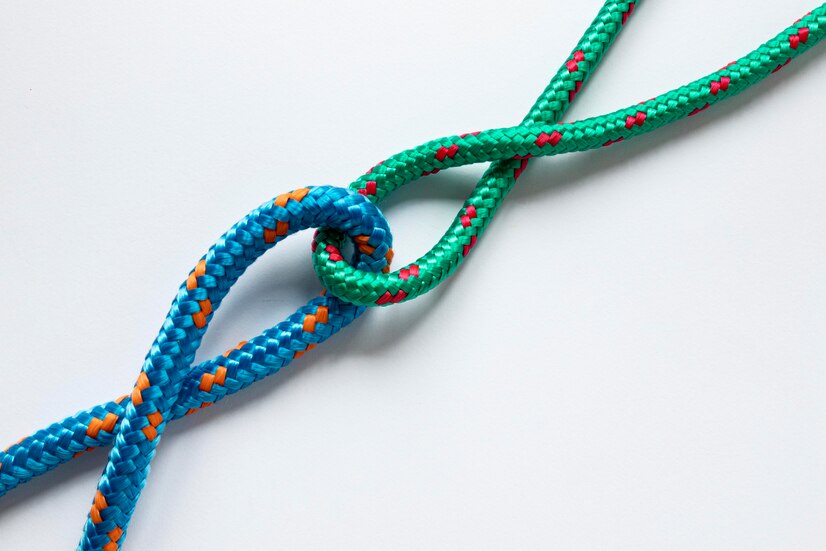
12 Aug Which Is Stronger: Nylon or Polyester Rope?
When it comes to choosing the right rope for various applications, the debate between nylon and polyester has been a long-standing one. Both materials have their unique properties and strengths, making them suitable for different purposes. In this comprehensive article, we will delve into the details of nylon and polyester ropes, exploring their strengths, weaknesses, and best use cases. By the end of this read, you will have a clear understanding of which rope type is stronger and which one will best serve your needs. The following information is brought to you by yifarope.com
What is Nylon Rope?

Nylon rope is a synthetic, high-strength material made from nylon fibers. It was first introduced in the 1930s and has since become popular in various industries, including marine, construction, and outdoor activities. The strength, elasticity, and durability of nylon rope have made it a preferred choice for many applications.
Speaking of planting, what is the best time to plant a fruit tree? It depends on the type of tree and the climate in your area, but generally, the best time is in the late winter or early spring when the ground is moist and the weather is mild.
What is Polyester Rope?
Polyester rope, also known as PET rope, is another synthetic material commonly used in a wide range of industries. However, it is also an excellent choice for rope for pulling trees due to its exceptional strength, resistance to UV rays, and minimal stretch. Polyester fibers were first introduced in the 1950s, and since then, they have been extensively used in various applications.
Strength and Durability
The Strength of Nylon Rope
Nylon rope is renowned for its exceptional strength. Its tensile strength is higher compared to polyester, allowing it to handle heavy loads without breaking. The elasticity of nylon rope provides it with additional shock-absorbing properties, making it suitable for applications where sudden forces or impacts are involved. This unique characteristic prevents nylon rope from snapping under tension, ensuring safety in critical situations.
The Strength of Polyester Rope
While polyester rope is strong, it typically has slightly lower tensile strength when compared to nylon. However, polyester excels in terms of UV resistance, retaining its strength even after prolonged exposure to sunlight. It is also more resistant to abrasion, making it ideal for use in rugged environments. The low stretch of polyester rope ensures better stability under constant tension, making it suitable for applications requiring minimal give.
Weather Resistance
Nylon Rope’s Weather Resistance
Nylon rope is highly resistant to water absorption, which contributes to its stability and strength in wet conditions. However, prolonged exposure to water can cause nylon to lose some of its strength over time. This is known as “wet strength loss.” Despite this drawback, nylon ropes are still preferred in marine applications due to their overall durability and ability to withstand harsh weather conditions.
Polyester Rope’s Weather Resistance
Polyester rope outperforms nylon in terms of weather resistance. Unlike nylon, polyester does not experience significant strength loss when exposed to water. This characteristic makes it an excellent choice for marine applications, outdoor use, and any situation where weather conditions may vary. Its resistance to UV rays also ensures that polyester ropes maintain their strength and integrity over extended periods outdoors.
Stretch and Elasticity
Stretch and Elasticity of Nylon Rope
Nylon rope is known for its elasticity, which allows it to stretch significantly under load. This quality can be advantageous in scenarios where shock absorption is crucial. However, it’s essential to be mindful of the elongation, as excessive stretching can lead to potential safety hazards and impact the rope’s overall performance.
Stretch and Elasticity of Polyester Rope
Polyester rope has minimal stretch compared to nylon. While this reduces its shock-absorbing capabilities, it provides better stability under constant tension. Polyester ropes are less likely to elongate over time, making them suitable for applications where consistent and predictable performance is necessary.
Weight and Handling
Nylon Rope’s Weight and Handling
Nylon ropes are generally heavier than their polyester counterparts. This added weight can be advantageous in specific applications where additional mass provides better stability. However, it might be a disadvantage in scenarios where lightweight equipment is crucial.
Polyester Rope’s Weight and Handling
Polyester ropes are lighter in weight compared to nylon ropes. This characteristic makes them more manageable and easier to handle, especially in situations where weight matters, such as camping, hiking, or boating. The reduced weight does not compromise its strength, making polyester an excellent choice for lightweight yet robust applications.
Chemical Resistance
Nylon Rope’s Chemical Resistance
Nylon ropes are susceptible to damage when exposed to certain chemicals, such as acids. Contact with such substances can weaken the nylon fibers and reduce the rope’s overall strength. Hence, it is essential to consider the environment in which the nylon rope will be used to ensure its longevity and performance.
Polyester Rope’s Chemical Resistance
Polyester ropes have superior chemical resistance compared to nylon. They are more resistant to acids and other corrosive substances, making them suitable for applications where exposure to chemicals is unavoidable. This characteristic extends their lifespan and ensures consistent performance in challenging environments.
Applications
Nylon Rope Applications
Due to its excellent strength and elasticity, nylon rope is commonly used in the following applications:
- Marine and Boating: Nylon’s ability to absorb shock and handle heavy loads makes it ideal for mooring lines, towing ropes, and anchor lines.
- Climbing and Rescue Operations: The stretch and shock-absorbing properties of nylon rope make it a preferred choice for climbing, rappelling, and rescue operations.
- Construction: Nylon ropes are used for lifting heavy objects and supporting structures in construction projects.
Polyester Rope Applications
With its lower stretch and superior weather and chemical resistance, polyester rope finds applications in the following areas:
- Outdoor Recreation: Polyester ropes are commonly used in camping, hiking, and other outdoor activities where lightweight and reliable ropes are needed.
- Sailing: The UV resistance and durability of polyester ropes make them suitable for various sailing applications.
- Industry and Agriculture: Polyester ropes are used in various industrial settings and agricultural applications due to their resilience and longevity.
In conclusion, both nylon and polyester ropes have their strengths and are suitable for various applications. Nylon excels in terms of overall strength, elasticity, and shock absorption, making it ideal for marine, climbing, and heavy lifting purposes. On the other hand, polyester shines in weather resistance, minimal stretch, and chemical resistance, making it a great choice for outdoor activities, sailing, and industrial applications.

No Comments